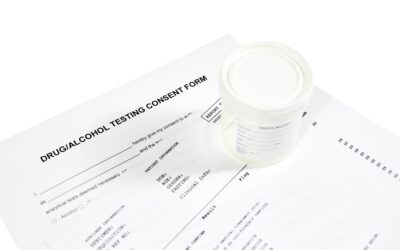Addiction is often diagnosed in combination with several other psychological illnesses, which are examined during addiction counseling. One of the most common is depression. However, there are different types of depression, like high functioning depression, that are a bit more tricky to detect.
High functioning depression is known for having similar characteristics as traditional depression, but with lessened severity. This makes it more likely to go undiagnosed, internally experiencing symptoms while externally hiding their suffering. When high functioning depression sufferers do express their symptoms, it comes across as only moderate emotions of sadness and hopelessness.
A notable characteristic, however, is that this version of depression tends to be long-lasting. High-functioning depression, although considered less severe, is much more long-term and can be equally dampening. The symptoms like low self-esteem, fatigue, and hopelessness, contribute toward worsening addiction and can be much more difficult to treat.

Understanding High-Functioning Depression
Unlike traditional depression, high functioning depression increases the pressure to uphold the emotional well-being of those who suffer. The feelings of inadequacy and despair are still observable, but being less intrusive prompts subtle changes in behavior. Minor changes in behavior may be observed and are opposed to obvious psychological turmoil. Such outward distress that’s observed with a traditional diagnosis of depression, is not as recognizable as in high functioning depression.
While “high functioning” depression is an appropriate descriptive term, the proper terminology for the illness is persistent depressive disorder (PDD). Furthermore, according to the DSM-5, another term for PDD is Dysthymia. While high functioning depression comes with different challenges, like an addiction it can be managed with professional care. Alternatively, if left untreated it will persist over time and could impact the severity of addiction, calling for immediate intervention.
High-Functioning Depression Is Very Common
Despite being less noticeable initially, high functioning depression is often noted in combination with substance abuse. High-prompts functioning depression, being reasonably more common, tends to slip past a confirmed diagnosis more than it should. Because this type of depression is constant, instead of cyclical, it is clinically difficult to identify.
Treatment centers that specialize in addiction place extreme importance on mental health, and are equipped with sufficient resources to diagnose. Specifically, by understanding high functioning depression symptoms and being aware of those that are more likely to be affected. For example, over 14.5 million people in the United States are diagnosed with a form of depression each year. Of those, 3 million are said to be suffering from high functioning depression.
To narrow it down even further, high functioning depression is twice as likely to affect women over men. While this does not suggest that males are specifically immune, it does indicate gender distinction. Coupled with the number of women addicted to substances, and being able to conceal dependency, effective evaluation is categorically necessary.
High-Functioning Depression Symptoms
The tricky part about accurately identifying high functioning depression is becoming aware of someone trying too hard to behave “okay.” Granted, no one has it all together all of the time, because that would be unreasonable. But people with high functioning depression are constantly fighting one battle with the other. Not only are they suffering from a constant state of depression, but also need to cautiously fake feeling emotionally well. Understanding what depression feels like is a major turning point, but the routine of hiding behind addiction prevents effective treatment.
However, because high functioning depression is still depression, it is not asymptomatic. Some recognizable high functioning depression symptoms include:
- Losing interest in previously enjoyable activities
- Feeling empty or down
- Hopelessness, worthless or sadness
- Putting too much pressure on themselves
- Having unreasonably high standards
- Frequent loss of energy or exhaustion
- Low self-esteem or self-critical attitude
- The decline in productivity or performance
- Avoiding people or places
- Irritability, agitation, or irrational emotions
- Eating disorders or irregular eating habits
- Trouble concentrating
- Difficulty sleeping
Although high-functioning depression is often concealed from others, frequently making excuses to not have the time is a red flag. The constant upkeep to hide PDD is responsible for the most predominant symptom, which is frequent emotional exhaustion.
Because of that, it can be up to the individual to come forward about their depression and needing help. Unfortunately, many individuals first come forward needing addiction treatment, before addressing the underlying illness that triggered substance abuse.
High-Functioning Depression And Co-Occurring Illnesses
High functioning depression isn’t only suspected along with chronic cases of addiction. It has been known to accompany the diagnosis of anxiety and bipolar disorder, making dual diagnosis treatment even more detrimental. When more than one illness prevents adequate treatment for the other, dual-diagnosis treatment is a rehab option.
Although a substance use disorder can co-occur with many different psychological illnesses, depression is often at the forefront. Around half of those that suffer from addiction are diagnosed with a chronic psychological condition, such as high functioning depression. Alternatively, substance abuse as a means to self-medicate is unfortunately abundantly common. Self-medication is common in many co-occurring illnesses, such as anxiety, or impulse control disorders.
Considering how long-term high-functioning depression is, developing an addiction within a significant time is often observed. Identifying a dual diagnosis in cases where individuals have high functioning depression can make or break addiction treatment. This is why professional rehab is the best option for addiction and ongoing psychological support.
Living With High-Functioning Depression
High-functioning depression can be just as much behavioral as it is emotional. By breaking the cycle of negative, depressing, and addictive triggers, including their responses, beneficial conduct can fill the place. This practice is known as cognitive-behavioral therapy (CBT) and is an essential therapeutic program incorporated into addiction therapy.
Once an individual is in the routine of concealing their long-term high-functioning depression, these behaviors become nothing but coping mechanisms. Although these individuals may seem happy, prepared, intelligent, and successful, inside they are struggling with a persistent sense of sadness.
The internal negativity slowly eats away at their ability to function and increases the need to hide their depression. This is often when a turn to substance abuse and addiction arises. Initially, as an attempt to ease symptoms, tolerance and dependence can occur very quickly, and addiction worsens depression symptoms. Fortunately, rehab is designed to incorporate therapeutic methods to interfere with these associations.
Treatment Options For High-Functioning Depression
Being able to identify a high functioning depression when struggling with an addiction can be difficult, but rehab can help. In knowing how to help someone with drug addiction and depression, these professionals expedite healing from an already grueling illness. However, depending on the severity of the illness, and the duration of addiction, the intensity of treatment can vary. Typically, when treating high functioning depression and substance abuse, the first step is detox.
Detoxing Provides Clear Perspective on High-Functioning Depression
While actively abusing substances, addiction worsens through cycles of crashing, withdrawal, and drug use. During this time, symptoms of high functioning depression blur into withdrawal, making it harder to notice. Some addicts fail to recognize that they are suffering from high functioning depression, until clean and in treatment.
That’s why it is important, to begin with, detox, and reevaluate once completely sober. The process of detoxing is conducted in a safe and comfortable environment. It is often in the same center as treatment will be provided. This is important to be able to swiftly move directly into therapy and counseling. By speeding up the diagnosis of high functioning depression, the individual can receive treatment without unnecessary psychological stress, during an already delicate time.
Inpatient Treatment for Addiction and High-Functioning Depression
Inpatient treatment is increasingly useful in cases where a dual diagnosis is expected. By remaining within the facility for the duration of treatment, the temptation to immediately relapse is off the table. This also gives counselors, doctors, and therapists time to evaluate the mental and emotional state of the addict.
As established, high functioning depression is easier to diagnose after detox, but still may not be obvious at first. Risking the time an individual has between detox and treatment, all before understanding the effects of their depression is contradictory. Instead, while in the comfort of the program’s residential area, the individual can receive the care that they need. While receiving addiction treatment they will participate in onsite therapy, to evaluate and assess high functioning depression that co-occurs.
How to Help Someone With High-Functioning Depression
Being that high functioning depression is so hard to identify, it may be difficult to notice your loved ones suffering. But just like other types of depression, it is important to let your loved one know you’re there as support. High functioning depression and addiction, like any other illnesses, are confusing, both for the one suffering, and those around them.
Depression is a lonely illness in more ways than one. Especially with high functioning depression, it can feel like no one understands because of the ongoing facade. It can cause a person to push away from those that care about them, especially when self-medicating. High-functioning depression often pushes a person to destroy even their closest relationships. Whether out of confusion or embarrassment, this is incredibly emotionally damaging.
Family therapy is available through rehab to begin to repair these special relationships that have been damaged along the way. They help to provide the suffering individual with a sense of peace, reconciliation, and a sense of community. While helping to build their support system, treatment for addiction and high functioning depression moves forward. This will be important moving forward, especially to avoid relapse.
Aftercare For High-Functioning Depression and Addiction.
After completing treatment is when the most important steps must be taken. Maintaining one’s sobriety while constantly being aware of their mental state can be tolling if not prepared. Especially considering that one illness may have a profound effect on the other, determination and diligence are required.
Rehab is designed to help those suffering from high functioning depression and substance abuse, focus on future efforts. Along with keeping up with therapy and checking in regularly with counselors, sticking to a routine helps tremendously. An aftercare program is designed to collaborate these helpful reinforcements.
Meetings And Therapy To Maintain Wellness With High-Functioning Depression
Although many illnesses can be cured, both a substance use disorder and high functioning depression are chronic. Without constant upkeep to maintain sobriety and psychological health, relapse into one or both is increasingly likely. The easiest way to manage both illnesses is to incorporate helpful practices into a routine.
There are many ways to do this and the most popular is participating in a 12 Step program. These sessions encourage regular physical and emotional check-ins, to be constantly aware of your mental status. What’s more, is the sense of community that comes with regular attendance. Especially for those with high functioning depression, regular social interaction can deter solitude, which contributes to relapse.
Getting Professional Help For High-Functioning Depression
Whether you have an addiction, high functioning depression, or both, getting professional care is the best option. Rehab and detox centers that are designed with complete psychological wellness in mind offer the best restorative conditions. Reach out to gather more information on how to get help for yourself, no matter how long you have suffered.
Specialists know how to help someone with drug addiction and depression but can only start once the decision is made. That decision is to get sober and take control over your high functioning depression and mental health. Getting better starts with the commitment to yourself to get sober. Today is the day to choose you.
References:
https://my.clevelandclinic.org/health/diseases/9292-persistent-depressive-disorder-pdd
https://www.health.harvard.edu/a_to_z/dysthymia-a-to-z
https://www.nimh.nih.gov/health/statistics/persistent-depressive-disorder-dysthymic-disorder





